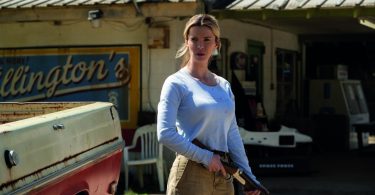There are few films I’ve seen that I could watch repeatedly over and over until the disc breaks. Trainspotting – and its recently released sequel T2 – are among those few.
As a born and bred Scot, with a definite soft spot for Edinburgh (and Jonny Lee Miller), it was imperative that I got to see Trainspotting 2. Almost immediately, T2 connects strongly with the first film, with the opening notes of Lou Reed’s ‘Perfect Day’ taking you back to scenes in the original.
Renton has overcome his heroin addiction and had an apparent overhaul of character. His first port of call on his return from overseas is to see Spud, played by Ewan Bremner, who has been through plenty in the past twenty years. After this stressful reunion, Renton goes to see Sick Boy, played by Jonny Lee Miller, who is now addicted to a different drug from the original film. The final missing piece of the jigsaw is Begbie, with Robert Carlyle returning to his role as the extremely violent and aggressive petty criminal. From the word go, it’s obvious that both of them being in the same city will be an issue – regardless of the size of Edinburgh.
Trainspotting always brings a sort of comfort from home. T2 evoked these same feelings in me as a sort of cosy nostalgia for my younger days – quite like what I imagine Renton must have felt on his arrival back home when he saw Spud, and even after his initial reintroduction with Sick Boy.
We must, however, address issues with both films. After Trainspotting’s release, Irvine Welsh was accused of ‘glamourizing’ hard drug abuse. During 1996, the year Trainspotting was released, a total of 267 people succumbed to a drug-related death. Realistically, although very dark, the type of ‘lifestyle’ Ewan McGregor portrays is much more light-hearted than drug abuse in real life. Yet although drug addiction is much less glamorous than Trainspotting made it out to be, the film drills home both how easy it is to slip into addiction and how hard it can be to escape from.
T2 comes from a different angle; it charts the changing landscape of drug use among younger generations, with ‘hard’ drugs such as heroin being replaced by party drugs. In 2015, a total of 706 drug-related deaths were recorded. The problem has gotten worse. As much as T2 equally glamourises drug abuse, it does a great job of accurately depicting how these characters’ lives would have panned out after the closing shot of the original. No one returns fully recovered.
Although we cannot excuse these issues, T2 is still a hugely enjoyable film. I went to the cinema with very little hope that it could live up to the original – but it did just that. T2 comes with a healthy dose of nostalgia, like finding an old familiar friend.









